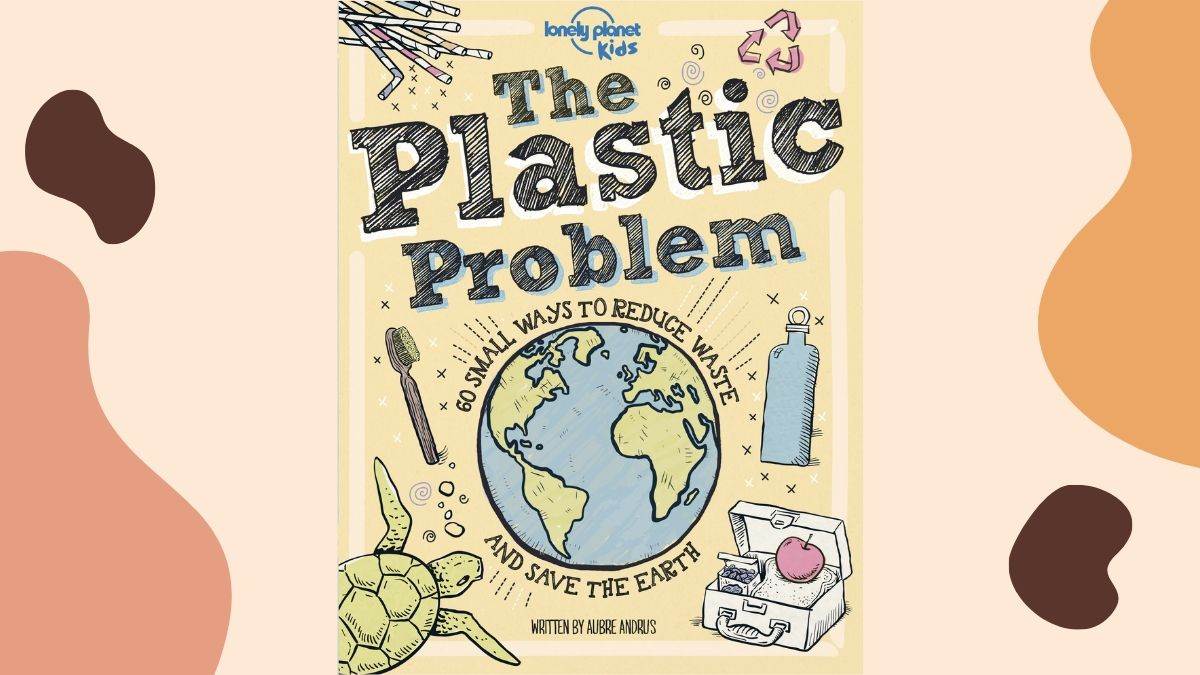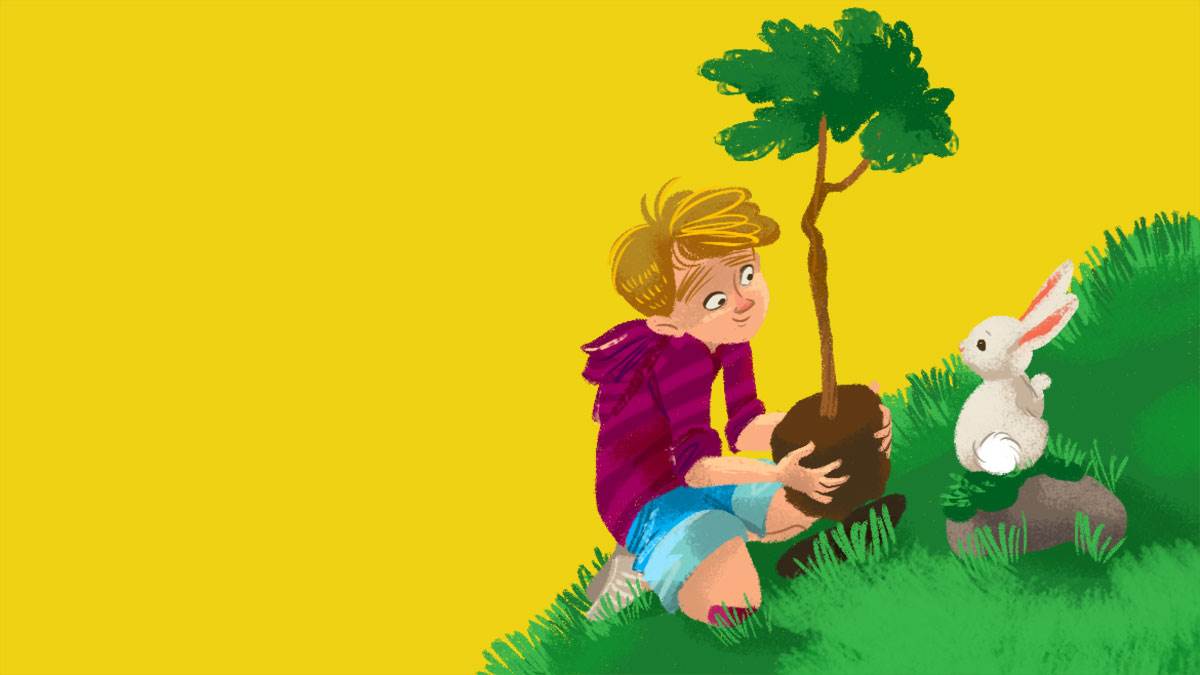The Plastic Problem: 5 easy ways to help you save the world
Published on: 25 March 2020
The Plastic Problem: 60 Small Ways to Reduce Waste and Help Save the Earth is full of practical tips to help us all make a difference. Here, author Aubre Andrus shares five simple ways to get started...

When I was a child, I was taught that I needed to 'save the Earth' by doing two things: 'don't litter' and 'reduce, reuse, recycle'. These instructions seemed simple enough, and they stuck with me into adulthood.
But as I grew up, the health of our planet became more and more dire, despite the fact that I picked rubbish off the pavement and religiously recycled my cans and bottles.
As it turns out, the advice I was given in my youth was not remotely enough to save the planet that we live on today - not even close. Recycling is not the answer. It's far from it. In fact, the popular 'reduce, reuse, recycle' phrase has been changed to, 'reduce, refuse, recycle'. Refuse, what? Well, plastic mostly, and waste in general.
In our fast-paced world, we prioritise convenience over everything, and that's where plastic comes in. It's cheap and disposable - two qualities that are highly convenient to businesses and consumers.

Illustration: Erika Meza
But those 15 seconds or 15 minutes of convenience that come with a plastic coffee stirrer or a plastic bag also bring a lot of negative side effects, every step of the way. And they're side effects that will remain on Earth hundreds of years longer than we ever will.
Plastic is made from fossil fuels that are often retrieved through fracking, which creates pollution and can lead to oil leaks. The plastic manufacturers run a risk of chemical leaks and fires. And once we've discarded our single-use plastic, sunlight breaks it down, which releases methane and ethylene (two greenhouse gases that contribute to global warming).
This is especially likely if the plastic is found in the ocean. Plastic pollution has been discovered on even the most remote uninhabited island in the world, as well as in the stomachs of a majority of marine life including sea birds, turtles, and whales. Why is plastic in the ocean? Because not all plastic can be recycled, and we are running out of places to hide our waste.
It's a dark subject, and one that's difficult to broach with kids! That was my challenge when writing The Plastic Problem - while the research was depressing, I used it as a springboard to create steps that could help to alleviate the anxieties surrounding this topic for kids and adults.
I wanted to empower others with the knowledge they needed to make a positive impact, no matter how small it may be. Our daily habits can change one person at a time. And in doing so, we can change the world. Here are a few ways to start:
1. Turn off autopilot
In The Plastic Problem, I encourage kids to become 'plastic patrollers', not 'plastic polluters'. That means learning how to identify when and where you can avoid plastic throughout your day.
Instead of mindlessly grabbing a plastic lid and straw for your soft drink, ask yourself, 'Do I even need this? Do I need three extra packets of sauce for my take-out meal when I have a bottle of sauce in my fridge at home?' Make more conscious choices about when and if you really need single-use plastic.
2. Avoid plastic packaging
Think of everything you buy that's wrapped in plastic, from paper towels to produce. Can you grab fresh broccoli and cut it yourself instead of buying pre-cut broccoli in a plastic bag? This is called pre-cycling, and it means that you make a decision about whether or not you should buy something based on how much of it can be recycled or reused. If it can't be recycled or reused, then maybe you shouldn't buy it!
3. Inventory your beauty products
Your bathroom is probably full of plastic containers. Can you find a plastic-free alternative? For example, a bar of soap can replace body wash in a plastic bottle. A cream-based makeup in a glass jar can replace liquid makeup in a plastic tube. Tooth powder in a tin is a great replacement for toothpaste in a non-recyclable tube.
4. Go natural
A lot of changes that are better for the planet are better for our health - and our wallets, too. Think about relying on vinegar and baking soda to clean your bathroom and kitchen instead of various cleaning supplies that arrive in plastic bottles, can add toxins to our homes, and can pollute our drinking water too. While you're cleaning, use fabric towels instead of paper ones (which come wrapped in plastic).
5. Talk about it
Tell others about how you've changed your habits, and how they can go about making changes too. Explain why these changes are important to you, and to all of us. Teach the kids in your lives why convenience is not always the best choice. And, most importantly, vote for leaders who prioritise the planet, and hold businesses accountable for the negative actions they are taking on the planet.
Helpful links
• Wrap: The UK Plastics Pact
• The Plastic Pollution Coalition
• The Ocean Cleanup
• Our Last Straw
• 5Gyres
• Plastic Oceans
• 4Ocean
• Break Free From Plastic
Topics: Animals, Environment, Nature, Features






Add a comment